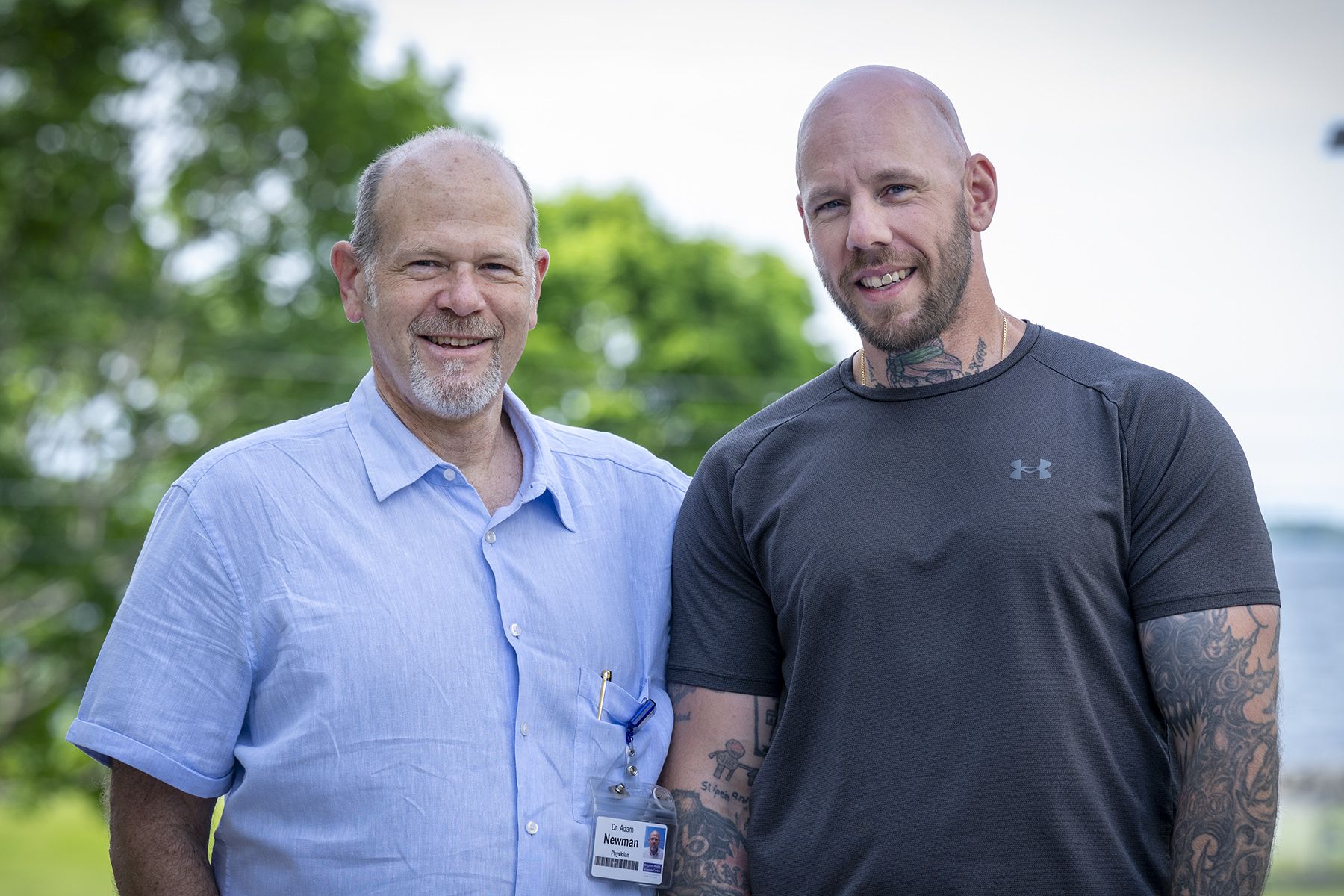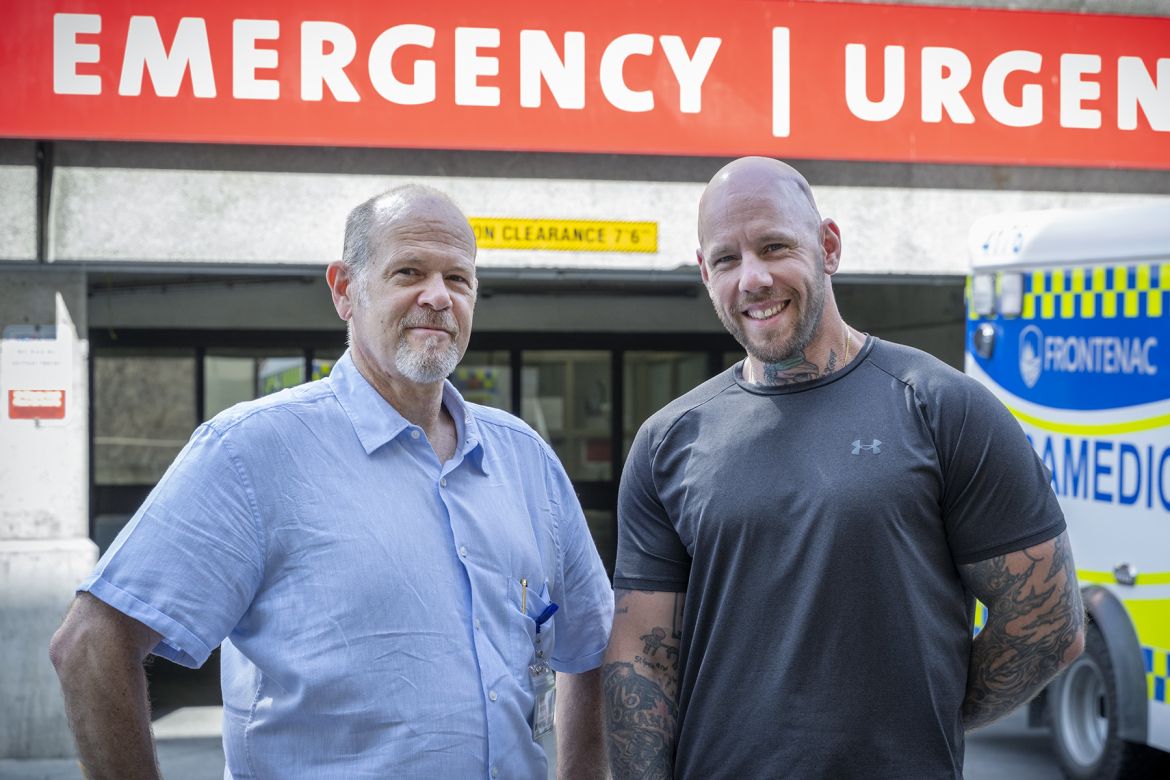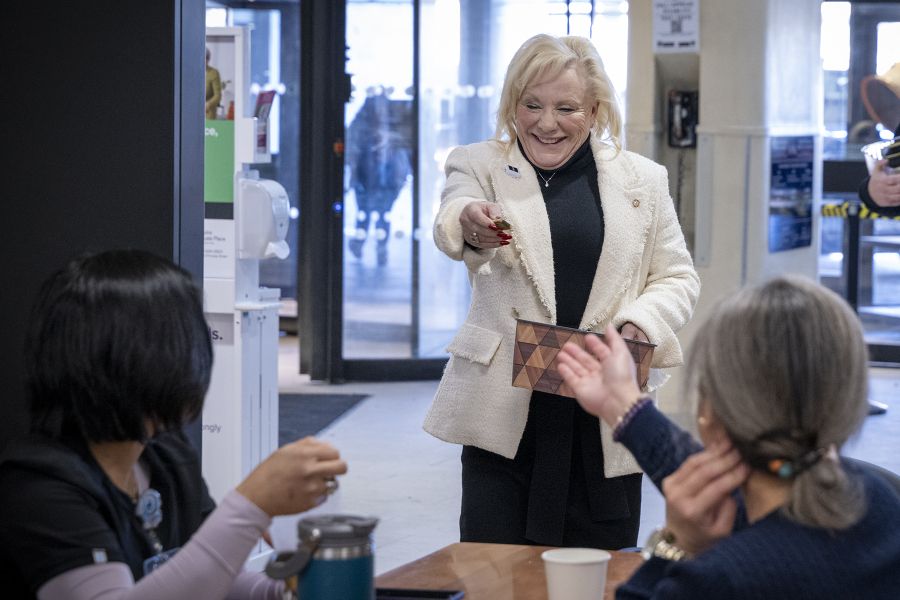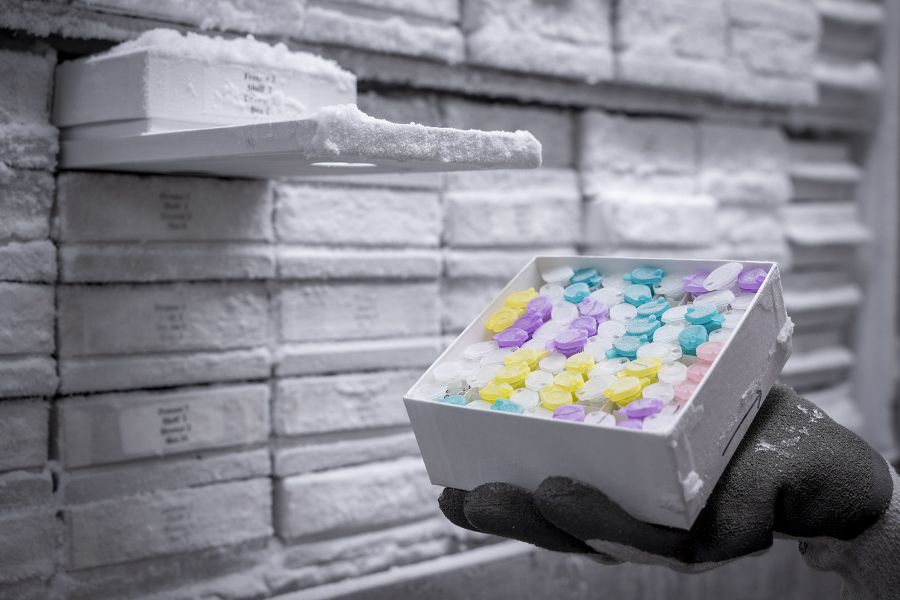
When Rick Parker was prescribed pain medication after having a brain tumour removed in 2019, he said ‘No.’
It’s a regular prescription for most brain surgery patients. But not for Parker, who injected opioids for over four years and was less than a year into his addiction recovery.
“My surgeon told me he’s been sawing brains for 30 plus years and has never seen anyone able to refuse pain meds post-surgery, and that this was a valid reason to take them. It was up to me to choose.”
Parker remembers the first time he chose to inject drugs; it was the end of his 17-year military career and after his second and last frontline tour in Kandahar, Afghanistan.
“I tried it, I couldn't stop, and within a year, everything was a disaster.”
Taking pain meds after surgery was different, yes, but somehow the risk felt similar.
Parker says the support and advice addiction specialist Dr. Adam Newman gave him over several years is why he was able to recover from surgery sober.
Doc Newman has always gone out of his way to assure and support me, and that helped me go through a painful recovery with no drugs. He gave me the confidence I didn’t think I had to see it through and the desire not to let him down.
“I was able to stay sober and refuse the two weeks of free designer pharmaceuticals they were gonna give me.
“So now, I take all the credit when he's not around, and I carry that clean surgery recovery like a badge of honour. It is an accomplishment that I am most proud of today, and he got me here.”
Dr. Newman says Parker’s clean surgery is highly unusual and that pain management after surgery for people recovering from addiction should be tailored to the individual.
“The need for individualized and specialized hospital care is precisely why the Substance Treatment And Rehabilitation Team (START) was created, and I would say Rick is one of the spiritual founders of the team,” he adds.
A connection made in the hardest moments

The two first met by chance in 2016 (three years before START began) when Parker was being wheeled out of Kingston Health Sciences Centre’s (KHSC) Emergency Department just as Dr. Newman was starting his shift. A couple of days later, when Parker was in a hospital unit recovering from a blood infection related to injection drug use, Dr. Newman was at his bedside.
“We talked for a while. He told me that things don't have to stay like this. He said that when I was ready to make some changes, he would be happy to talk about some options and some support groups like Narcotics Anonymous. He gave me his info and told me how I could get in touch with him if I chose to.
“I was admitted four or five more times after that for the next two years for various infections, psych-wing visits and a surprise heart surgery.
“He came and saw me each of those times while I was in the hospital to check in and to talk and to let me know his offer still stood if I was ready.
“Doc Newman saw me again when I was leaving the hospital after my brain surgery. By then, I was seven months sober after the seventh and final time in a residential rehabilitation treatment centre.
I would have been dead long ago if it weren't for him and his care, understanding, concern, dedication and expertise.
“I'd take a bullet without hesitation for that man, if it ever came down to it. I feel he went above and beyond to help me, and I am still his patient seven years later. I am currently tapering off my monthly sublocade shots with his guidance and management.
“I follow every bit of direction and advice he gives me like it were gospel.
“After you’ve lived with addiction for a while, it’s really hard to imagine yourself sober and functioning at all; your thoughts are so polluted and self-defeating.
“I didn't expect to be where I am now in my recovery, especially while I was still using drugs. It’s impressive what someone can do in tough times. With some help and the right support, it’s not as hard as you think.
“I hope it is somewhat reassuring for someone reading this to see someone like me on the other side of what they might be going through.”
About START
START is an addiction medicine consultation service that officially launched at KHSC in 2019 to help patients in the hospital cope with their substance use disorders while receiving medical care for conditions directly or indirectly related to their addiction. The team—made up of medical doctors, psychiatrists, nurses and an addiction-care navigator—meets patients where they are in their recovery journeys. Grounded in compassion, free of judgment, and centred on hope, START works to reduce stigma, improve health outcomes, and support patients in taking meaningful steps toward lasting recovery.



